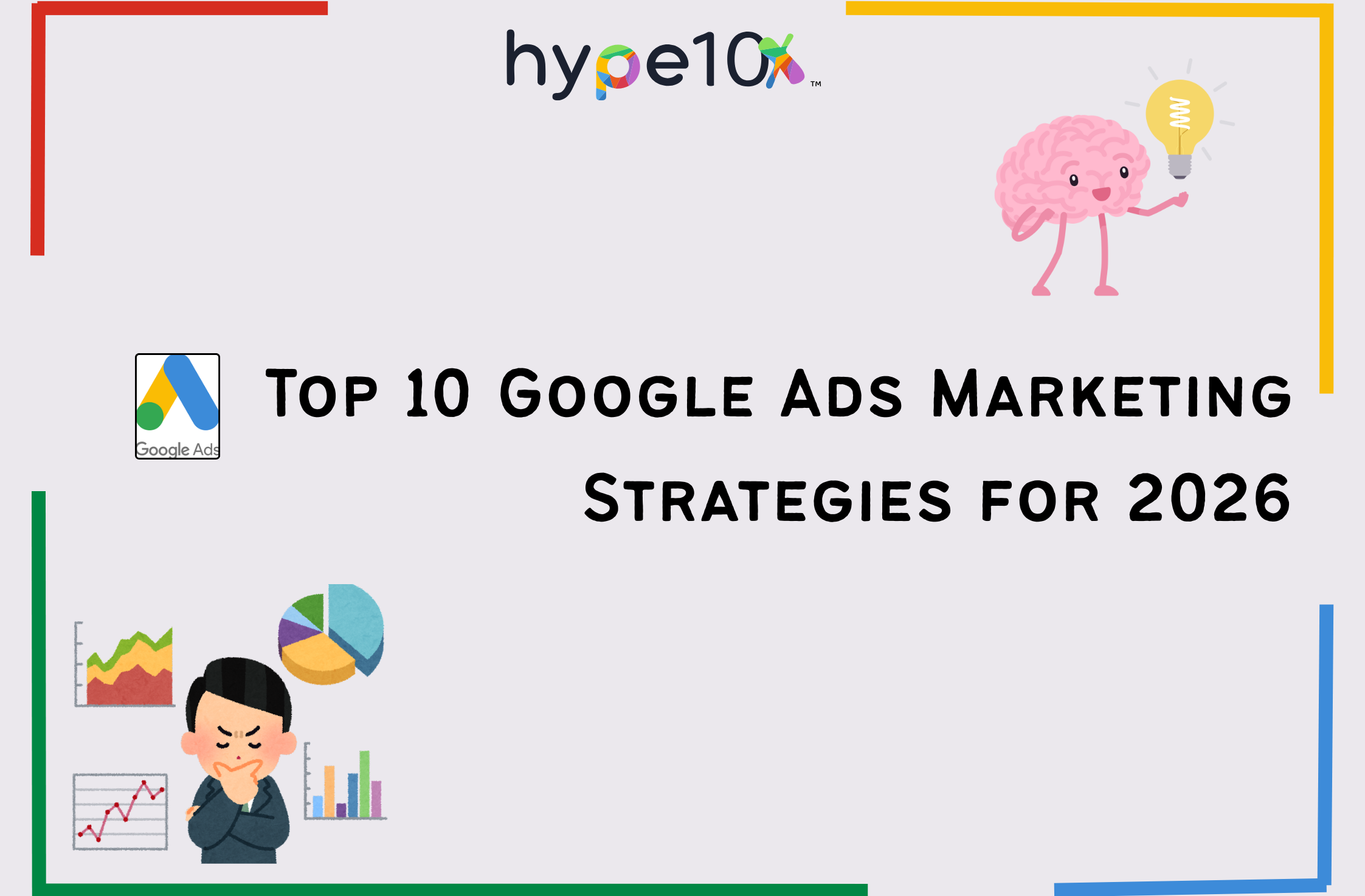Table of Contents
The education sector has transformed dramatically over the past few years. Students and parents no longer depend only on brochures or physical campus visits to make decisions. They research online, compare institutions, attend webinars, and even follow student experiences on social media before applying.
To reach this digitally savvy audience, institutions need more than just a basic website. They need a clear, well-planned approach. This is where digital marketing strategies for education industry play a vital role. Whether you’re promoting a university, coaching centre, edtech platform, or school, the right strategies can help you boost visibility, attract quality leads, and increase enrolments.
Let’s explore the top strategies to get ahead in 2025.
1.Create a User-Friendly Website That Converts

Your website is your digital campus. It’s often the first interaction students and parents have with your institution.
A student-centric website should:
-
- Load fast and work smoothly on all devices, especially mobile.
-
- Have clear navigation for courses, admissions, fees, placements, and contact details.
-
- Include strong calls to action like “Apply Now,” “Book a Virtual Tour,” or “Download Brochure.”
-
- Integrate lead capture forms and chatbots to answer questions quickly.
-
- Offer virtual campus tours, testimonials, and interactive sections to engage visitors.
A well-structured website forms the foundation of all digital marketing strategies for education industry.
2. Invest in SEO and Content Marketing

Search engines are where most students begin their research. If your institution isn’t ranking for relevant queries, you’re missing valuable leads.
Here’s how to improve visibility:
-
- Keyword research: Identify the exact phrases students and parents use, like “top MBA colleges in India,” “NEET coaching online,” or “best digital courses after 12th.”
-
- On-page SEO: Use your main keyword digital marketing strategies for education industry naturally in headings, meta tags, image alt texts, and content.
-
- Content creation: Publish helpful blogs, guides, FAQs, and student success stories that answer real questions.
-
- Technical SEO: Improve site speed, fix broken links, add schema markup, and ensure HTTPS security.
-
- Backlink building: Collaborate with educational directories, blogs, and local portals to earn quality backlinks.
Strong SEO ensures that your digital presence keeps bringing leads organically, even when you’re not running ads.
3. Leverage Social Media Marketing

Social media is one of the most powerful digital marketing strategies for education industry. Students spend a large part of their day on platforms like Instagram, YouTube, LinkedIn, and even TikTok.
Here’s how to make the most of it:
-
- Platform selection: Pick platforms based on your audience. For example, use LinkedIn for graduate programmes and Instagram or YouTube for undergraduate or coaching content.
-
- Authentic content: Share campus life videos, alumni stories, behind-the-scenes clips, faculty talks, and interactive reels.
-
- Community building: Respond to comments, run Q&A sessions, and encourage user-generated content like student takeovers.
-
- Paid social ads: Use targeting features to reach potential students based on location, age, and interests.
Social media is not just for brand awareness—it’s also a conversion driver when done strategically.
4. Run Targeted Paid Advertising Campaigns

While SEO builds long-term traffic, paid ads can give you quick visibility. Paid ads on Google, Meta (Facebook/Instagram), and LinkedIn allow you to reach the right audience instantly.
Effective strategies include:
-
- Search ads: Target keywords students actively search for (e.g., “best engineering colleges in Mumbai”).
-
- Display & video ads: Place ads on websites or YouTube channels your audience frequently visits.
-
- Retargeting: Show ads to people who visited your website but didn’t fill out the enquiry form.
-
- Geo-targeting: Run campaigns focused on specific cities or regions where your prospective students live.
With proper tracking and optimization, paid ads can significantly improve lead generation and enrolment numbers.
5. Use Email Marketing to Nurture Leads

Email remains one of the most cost-effective digital marketing strategies for education industry. After collecting leads through forms, webinars, or ads, nurture them with timely and relevant communication.
Tips for effective email marketing:
-
- Segment your audience: Group students by interests, programme type, or application stage.
-
- Send value-based emails: Share admissions reminders, course highlights, faculty introductions, and student success stories.
-
- Automate follow-ups: Set triggers for when a student downloads a brochure, attends a webinar, or visits a course page.
-
- Measure performance: Track open rates, click-throughs, and conversions to refine campaigns.
This keeps your institution top-of-mind and builds trust over time.
6. Host Webinars and Virtual Events

Webinars have become a powerful recruitment tool. They allow you to connect with students globally and provide real-time interaction.
You can host:
-
- Course introduction webinars with faculty members
-
- Q&A sessions with current students and alumni
-
- Virtual campus tours for international students
-
- Industry talks to highlight career outcomes
Webinars not only generate leads but also build credibility. They give students a personal touch before they make a decision.
7. Create an App or Strong Mobile Experience

Today’s students rely heavily on mobile. Offering a smooth mobile experience is no longer optional.
Consider:
-
- A mobile-friendly website with fast forms and clear navigation
-
- A dedicated app for admission updates, course details, and chat support
-
- Push notifications for deadlines, events, and announcements
A good mobile experience makes your communication faster and improves lead-to-application conversion rates.
8. Highlight Student Testimonials and Social Proof

Trust plays a huge role in education decisions. Testimonials, reviews, and alumni stories are key elements of digital marketing strategies for education industry.
-
- Showcase real student experiences on your website and social platforms.
-
- Highlight placements and success stories to demonstrate outcomes.
-
- Encourage Google and portal reviews to improve your reputation.
-
- Respond to both positive and negative feedback professionally.
Social proof builds credibility and influences decision-making.
9. Use Analytics to Track and Optimize Campaigns

Digital marketing works best when it’s measurable. Use tools like Google Analytics 4, Meta Ads Manager, and CRM dashboards to track every stage of the student journey.
Key metrics to monitor:
-
- Website traffic and sources
-
- Lead form conversions
-
- Webinar sign-ups and attendance
-
- Application starts vs completions
-
- Cost per lead and cost per enrolment
Regularly reviewing these numbers helps you allocate budgets wisely and improve weak points.
10. Personalize the Student Experience

Personalization is becoming a major trend in digital marketing strategies for education industry. Generic messages no longer work.
Ways to personalize:
-
- Show course suggestions based on user behaviour on your site
-
- Send targeted emails depending on a student’s stage in the funnel
-
- Use chatbots to answer personalised queries
-
- Create dynamic landing pages for different audience segments
The more relevant your communication, the better your engagement and conversions.
Implementation Roadmap for Institutions
Here’s a simple step-by-step approach to applying these strategies effectively:
-
- Audit your current digital presence: Check your website, SEO rankings, social activity, and email setup.
-
- Define your target audience: Segment students by age, interest, region, or career goals.
-
- Set measurable goals: For example, “Increase lead form submissions by 30% in 6 months.”
-
- Prioritize foundational strategies first: Website, SEO, content, and social media.
-
- Run pilot paid campaigns: Test what works, then scale.
-
- Nurture leads: Use email, webinars, and personal touchpoints to convert.
-
- Measure and optimize: Make data-driven decisions to improve performance continuously.
Common Mistakes to Avoid
-
- Treating digital marketing as a one-time campaign
-
- Ignoring mobile optimization
-
- Focusing only on traffic, not conversions
-
- Posting random content on social media without strategy
-
- Neglecting reviews and online reputation
-
- Not tracking ROI or adjusting campaigns
Avoiding these mistakes ensures your strategies deliver consistent results.
Final Thoughts
The education sector is evolving fast, and digital plays a central role in attracting and engaging students. By implementing the right digital marketing strategies for education industry, institutions can reach the right audience, build trust, and convert interest into admissions.
From SEO and social media to webinars and personalization, the opportunities are vast. Start small, stay consistent, and use data to guide every step. Over time, your digital presence will become a key driver of growth and credibility.




